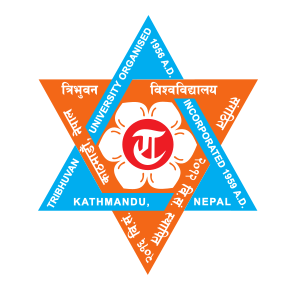Overview
Central Department of Botany, Tribhuvan University: Nurturing Botanical Education and Research in Nepal
Introduction to Botany in Nepal
- In 1947, Nepal witnessed the introduction of biology, including botany, at the Intermediate of Science level in Tri-Chandra College, Kathmandu.
- The subject gained further recognition and was elevated to a Bachelor's level program in 1950, followed by the establishment of post-graduate studies in 1965.
- Initially, the post-graduate classes at Tri-Chandra College started with a humble intake of eight students.
Evolution and Expansion of the Department
- In November 1967 (13 Mangsir 2024 BS), the Department of Botany moved to Kirtipur, marking a significant milestone in its growth and development.
- To further enhance the study of botany and promote research in plant science, the department underwent an upgrade in 1987, becoming the prestigious Central Department of Botany (CDB).
- CDB now offers M.Sc. and Ph.D. programs, catering to the academic needs of aspiring botanists and researchers.
Promoting Excellence in Botanical Education
- As the primary institution for higher education in botany within Tribhuvan University (TU), CDB has played a pivotal role for over five decades.
- The department has been instrumental in producing skilled personnel and experts in various fields of botany, contributing to the advancement of the discipline in Nepal.
- CDB's academic programs provide a comprehensive curriculum that equips students with the necessary knowledge and practical skills in plant science.
Driving Research on Nepal's Plant Wealth
- CDB is dedicated to conducting fundamental and applied research, focusing on exploring and understanding Nepal's rich plant diversity.
- Through meticulous research endeavors, the department aims to establish a deeper connection between plants, people, and the environment.
- The findings and discoveries made by CDB's research initiatives contribute to the sustainable management and conservation of Nepal's plant resources.
Mission:
At the Central Department of Botany (CDB), our mission is to create an environment of excellence that attracts and nurtures exceptional students, faculty, and staff who are essential for realizing our vision. We are dedicated to studying the intricate patterns and processes that facilitate a predictive understanding of plants and their environments at various scales—local, regional, and global. By focusing on the fields of ecology, evolution, and systematics, we strive to achieve unparalleled expertise and advancements in botanical knowledge.
Vision:
Our vision at CDB is to be at the forefront of innovative research, teaching, and outreach, with a primary emphasis on unraveling the patterns and processes of life, particularly about plants and their environments. Through our comprehensive approach, we aim to push the boundaries of scientific understanding and contribute valuable insights to the broader scientific community. By fostering a deep connection with plant life and its surroundings, we seek to inspire a profound appreciation for the intricate web of life and the importance of its preservation.
Facilities:
At the Central Department of Botany (CDB), we understand the importance of providing exceptional facilities to facilitate cutting-edge research, promote learning, and enhance the overall academic experience. Here are the state-of-the-art facilities available to our students, faculty, and staff:
1. Research Laboratories: Our well-equipped research laboratories provide a conducive environment for conducting advanced scientific research. These labs are equipped with modern instruments, equipment, and technologies necessary for conducting experiments and analyzing data in various fields of botany.
2. Departmental Library: The CDB boasts a comprehensive departmental library that serves as a valuable resource center for students, faculty, and researchers. It houses an extensive collection of books, journals, research papers, and other reference materials related to botany and its various sub-disciplines. The library provides a tranquil space for studying and engaging in scholarly research.
3. Computer/Internet Facility: In an era driven by technology, we recognize the significance of computer and internet access for academic pursuits. CDB offers a dedicated computer facility equipped with the latest hardware and software, providing students and researchers with access to digital resources, data analysis tools, and online scientific databases. High-speed internet connectivity ensures seamless exploration of online botanical literature and collaboration with the global scientific community.
4. Herbarium: CDB takes pride in its herbarium, which serves as a repository of preserved plant specimens. This valuable collection facilitates taxonomic studies, plant identification, and research on plant diversity. Our herbarium is meticulously curated and houses a wide range of plant specimens, contributing to the understanding and documentation of Nepal's rich botanical heritage.
5. Botanical Garden: Our lush botanical garden provides a living laboratory for hands-on learning and research. It showcases a diverse array of plant species, allowing students and researchers to observe and study plants in their natural environment. The botanical garden serves as a hub for ecological studies, conservation efforts, and educational outreach programs.
6. Botanical Student's Society (BoSS): CDB believes in fostering a vibrant and engaging community of botany enthusiasts. The Botanical Student's Society (BoSS) provides a platform for students to come together, exchange ideas, organize academic and social events, and collaborate on botanical projects. BoSS promotes a sense of camaraderie and enables students to actively participate in extracurricular activities related to botany.
Academic Programs
The Central Department of Botany (CDB) offers a range of academic programs that provide students with a solid foundation in botany and equip them with the necessary skills to excel in their chosen fields. Our programs focus on in-depth theoretical knowledge, practical training, and research opportunities. Here are the academic programs offered at CDB:
1. M.Sc. in Botany: Our M.Sc. program in Botany is designed to provide students with comprehensive knowledge in various branches of botany. The program covers key areas such as plant taxonomy, plant physiology, plant ecology, plant biotechnology, and plant molecular biology. Through a combination of classroom lectures, practical sessions, and research projects, students develop a deep understanding of plant life and its diverse aspects.
2. M.Sc. in Biodiversity and Environmental Management: This specialized M.Sc. program is tailored for students interested in exploring the intricate relationships between biodiversity, ecosystems, and environmental management. The curriculum covers topics such as biodiversity conservation, ecosystem dynamics, environmental impact assessment, and sustainable resource management. Students gain practical skills in field surveys, data analysis, and conservation strategies, preparing them for careers in environmental management and conservation organizations.
3. Ph.D. Program: The Ph.D. program at CDB is designed for individuals seeking advanced knowledge and expertise in botanical research. This program provides a platform for aspiring researchers to pursue independent research projects under the guidance of experienced faculty members. Ph.D. students have the opportunity to contribute to the existing body of knowledge in their specialized areas, fostering innovation and making significant contributions to the field of botany.
Our academic programs at CDB follow a rigorous curriculum, incorporating both classroom learning and hands-on practical experience. We prioritize research and provide ample opportunities for students to engage in scientific investigations, fieldwork, and data analysis. The faculty members at CDB are renowned experts in their respective fields, ensuring high-quality education and mentorship.
Overall, the Central Department of Botany offers a diverse range of academic programs, including an M.Sc. in Botany, an M.Sc. in Biodiversity and Environmental Management, and a Ph.D. program. These programs provide students with comprehensive botanical knowledge, practical skills, and research opportunities, enabling them to excel in their chosen careers and make meaningful contributions to the field of botany and environmental sciences.
Contact Central Department of Botany's administrative office for detailed information on the course, admissions, location, fees, scholarships, facilities, counseling, or eligibility.
















